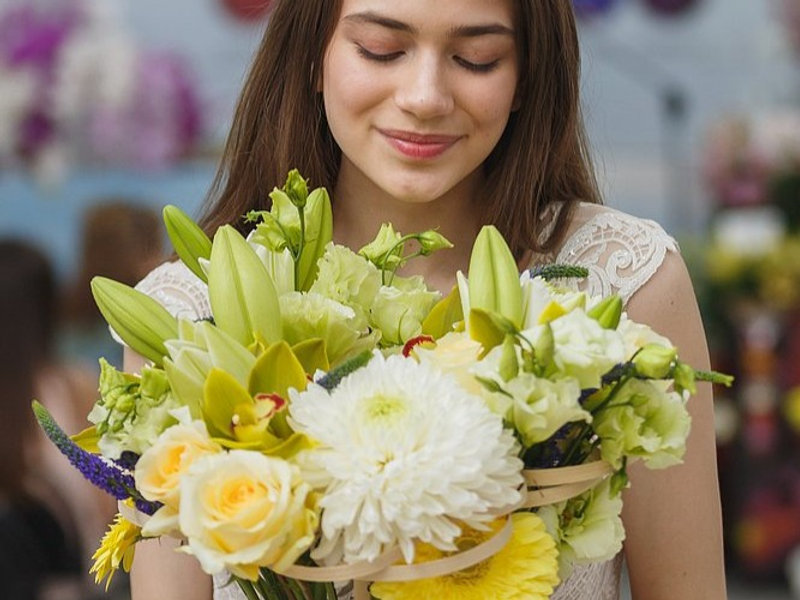
Flowers are more than just a beautiful addition to any room or garden. In fact, flowers have the power to change and enhance our moods and well-being. For centuries, people have been aware of the psychological effects of flowers. From ancient Egyptians to Chinese emperors, flowers have been associated with health and happiness. Recent studies have shed light on the physiological impact of flowers on our brains, revealing how they can affect us emotionally, mentally, and even physically.
How Flowers Affect Mood
Flowers have been known to have a positive impact on our mood and overall well-being. Studies show that exposure to flowers can reduce stress, anxiety, and depression. The beauty and fragrance of flowers can evoke feelings of happiness, relaxation, and calmness. If you are looking for quality flowers for your special occasion, Field Trip Flowers is the place from where you can get different variety of flowers.
The color of the flower also plays a significant role in affecting our mood. For example, bright colors like yellow and orange can promote feelings of happiness and optimism while blue hues can create a calming effect. Flowers also have the power to improve cognitive performance by improving memory retention and concentration.
In addition to their emotional benefits, flowers also offer physical health benefits such as reducing blood pressure, improving sleep quality, and boosting the immune system. Overall, incorporating flowers into your daily life can lead to an improvement in your mental health and well-being.
Types Of Flowers & Their Effects
Flowers have the power to uplift our mood and enhance our well-being. Different types of flowers have different effects on our emotional and psychological states.
Jasmine
Jasmine is known for its calming effect and ability to reduce anxiety levels. It is also used in aromatherapy to promote relaxation and improve sleep quality.
Lavender
Lavender is another popular flower that has a soothing effect on the mind and body. Its fragrance has been shown to lower heart rate, blood pressure, and stress levels in individuals exposed to it for as little as five minutes. Moreover, research suggests that inhaling lavender oil can alleviate symptoms of depression and anxiety.
Sunflower
Sunflowers are known for their ability to bring a sense of happiness into one’s life due to their bright yellow color which mimics the sun’s rays. They are also associated with optimism, positivity, and energy-boosting qualities making them an excellent choice when feeling down or low-energy. Overall, flowers have a profound influence on our mood and well-being; therefore it is important to choose wisely when selecting blooms for ourselves or loved ones!
The symbolism Of Flower Colors
Flowers have been used to convey messages and emotions for centuries, with each color having its own symbolic meaning. Red flowers symbolize love and passion, while blue flowers are associated with peace and tranquility. White flowers represent purity and innocence, while yellow flowers symbolize friendship and happiness. Pink flowers are often used to express gratitude or admiration, while purple flowers represent luxury and royalty.
The symbolism of flower colors can have a powerful impact on human emotions, affecting mood and well-being. The sight of vibrant red roses can evoke feelings of love and passion in the beholder, while the calming aura of bluebells can promote relaxation and reduce stress levels. Yellow sunflowers bring cheerfulness into a room, promoting feelings of happiness and positivity. You can choose from a variety of bouquets, corsages and basket arrangements from our flower shop as well as online delivery.
In conclusion, understanding the symbolism behind flower colors is important when choosing floral arrangements for various occasions or as gifts for loved ones. Whether it’s to express love or appreciation or simply to brighten someone’s day, different flower colors carry their own unique significance that can greatly influence our emotions and overall sense of well-being.
Conclusion
In conclusion, flowers have a profound impact on our mood and well-being. They have been used as a natural remedy for centuries to improve mental health, reduce stress levels and enhance happiness. Studies have shown that flowers can increase positive emotions and decrease negative ones by triggering the release of dopamine, serotonin and other feel-good neurotransmitters in our brains.
One of the key takeaways from this article is that different types of flowers have different effects on our emotions. For example, lavender is known for its calming properties while sunflowers are associated with happiness and positivity. It’s important to choose the right type of flower based on your individual needs and preferences.
In summary, incorporating flowers into your daily life can be a simple yet effective way to boost your mood and improve your overall well-being. Whether it’s through gardening, buying fresh blooms or simply admiring their beauty in nature, there are many ways to incorporate the power of flowers into your self-care routine.
